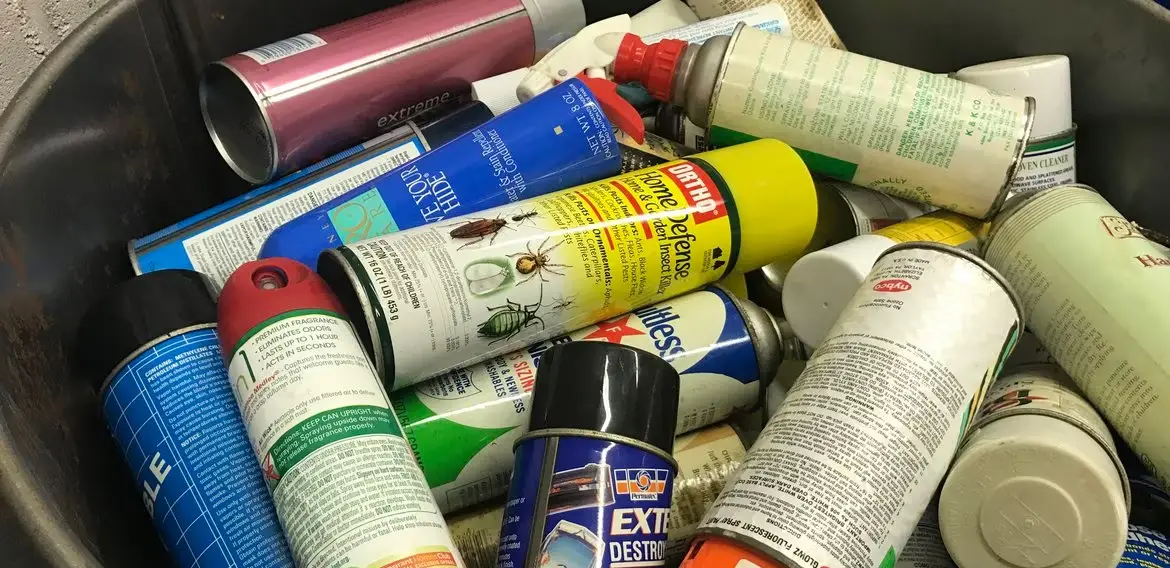When we visit various industrial locations and workshops to provide guidance on ideal ways to manage and store dangerous materials, we often encounter the incorrect management of aerosol cans.
Aerosol cans are omnipresent and very handy, explaining their prevalence in almost every workplace we tour. However, it’s crucial to remember that these are risky materials (Class 2.1.2A) that can pose several threats including:
Potential for explosion – Aerosol cans are under pressure and could explode if exposed to heat. Consider these real-world examples: A worker got burned when an aerosol adhesive, left near a heat gun, exploded. Two cooks got injured when a cooking oil spray can, left on a hot plate, blew up. Creation of flaming projectiles – Propellants, often highly combustible hydrocarbons like propane, N-butane and isobutane, can turn aerosol cans into flaming projectiles in case of a fire, spreading the flames across the workplace. Respiratory dangers – Aerosols, by design, convert pressured liquids into minute particles that can infiltrate deeply into the lungs.
Proper handling of aerosol cans should embrace these steps:
As with all dangerous materials, aerosol cans should be included in your inventory. You should keep a Safety Data Sheet (SDS) ready, conduct a risk assessment, and ensure that employees understand the risks and are adequately trained. We recommend that to follow a good practice you store your unused flammable aerosols in a gas cage when not in use. Never store aerosol cans inside a AS1940 flammable liquid cabinet. Gas cages, with their mesh walls, permit gases to scatter into the air and securely hold aerosol cans, even in case of an explosion. In the case of a fire , aerosol cans can become like missiles.
When utilizing aerosols, keep them away from heat or ignition sources. Using flammable aerosols near sparks or flames is never advisable. Also, don’t leave aerosol cans in vehicles or any place that might get hot. Discard any damaged aerosol can, as it could leak flammable gas or unexpectedly explode. Dispose of used aerosols responsibly. Most local authorities prefer aerosol cans to be recycled rather than dumped with regular waste.
Following these basic management steps can aid in mitigating the risks associated with flammable aerosol cans. Their ubiquity does not negate their potential hazards. Treat all dangerous materials with the necessary respect.
For advice on the optimal storage of your aerosol cans, feel free to reach out and say hello@rifft.co.nz

